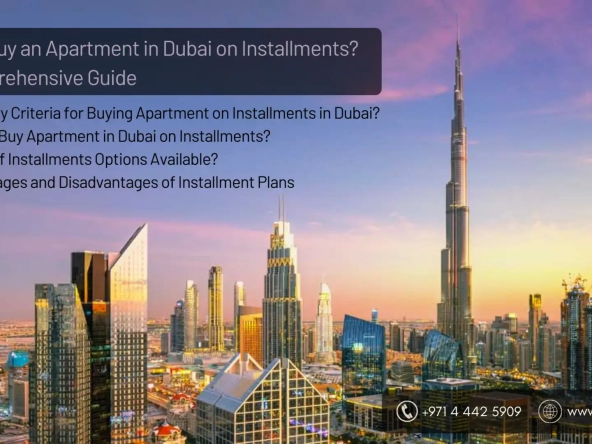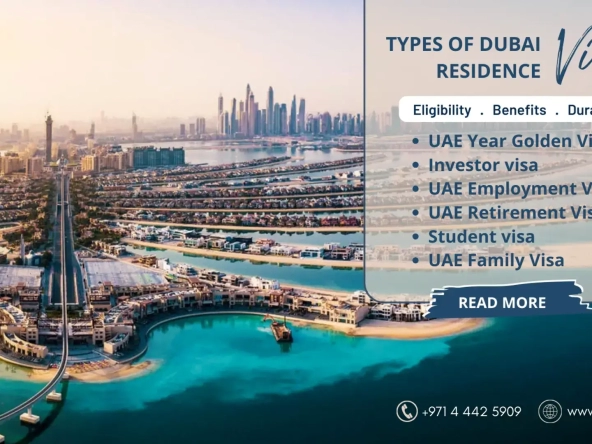Dubai’s like this incredible city in the United Arab Emirates that’s known for being super fancy and full of life. But here’s the kicker, it’s not just about the glitz and glamor; Dubai’s real estate scene is seriously something else.
You’ve got to see it to believe it—towering skyscrapers, like the famous Burj Khalifa, seem to pop up out of nowhere. They’re always pushing the limits when it comes to cool buildings.
Dubai has this knack for turning sand into gold. They’ve transformed the desert into a bustling city with all sorts of amazing places to live. You’ve got these ultra-luxurious homes right on the waterfront at Palm Jumeirah, or you can live in the heart of the action in Downtown Dubai. It’s got something for everyone.
What’s cool is that Dubai’s real estate market is a blend of tradition and high-tech. You’ll find futuristic projects alongside elegant, timeless designs. So, whether you’re looking to invest or find a new place to call home, Dubai’s real estate scene is definitely worth checking out. Let’s understand about!
Dubai real estate laws and regulations
Dubai real estate laws and regulations are quite investor-friendly and have played a big role in the city’s rapid growth. They have different zones where foreigners can own property, either through freehold or leasehold arrangements. The Dubai Land Department (DLD) manages these property transactions to make sure everything is fair and legal.
In recent times, they’ve made regulations stronger to protect both buyers and sellers. They now use escrow accounts for off-plan property sales, which means your money is safe until the property is ready. They’ve also set up the Real Estate Regulatory Agency (RERA) to keep an eye on how the industry works and make sure everyone follows the rules.
They’ve got something called strata laws as well. These laws help manage properties where multiple people own different parts, like in a building or a community. It sets clear rules for how those properties are managed and owned.
Dubai’s real estate market is attractive to investors, but it’s essential to keep up with the changing rules and regulations to do well in this dynamic market.
Dubai real estate laws
| Law Number | Law Citation | Law Name | Area of Application |
| Law No. 7 | DIFC Law No. 5 of 2018 | Dubai International Financial Centre (DIFC) Law | Applicable within the DIFC, a financial-free zone. |
| Law No. 13 | Dubai Law No. 13 of 2008 | Real Estate Regulatory Agency (RERA) Law | Governs real estate activities across Dubai. |
| Law No. 19 | Dubai Law No. 19 of 2017 | Jointly Owned Property Law | Regulates shared property ownership in Dubai. |
| Law No. 27 | Dubai Law No. 27 of 2007 | Strata Title Law | It applies to properties with shared amenities. |
| Law No. 85 | Dubai Law No. 85 of 2006 | Mortgage Law | Covers mortgage-related transactions in Dubai. |
| Law No. 9 | Dubai Law No. 9 of 2009 | Dubai Land Department Law | Governs the Dubai Land Department’s operations. |
| Law No. 13 | Dubai Law No. 13 of 2017 | Dubai Property Regulations (Interim) | Regulates off-plan property sales. |
Let me provide a more detailed explanation of the area of application for each of these Dubai real estate laws and regulations.
DIFC Law No. 5 of 2018 (Dubai International Financial Centre Law)
This one’s for the Dubai International Financial Centre (DIFC), which is like a financial hub within Dubai. It covers all the real estate stuff that happens in DIFC, like buying or renting properties.
Dubai Law No. 13 of 2008 (Real Estate Regulatory Agency—RERA Law)
This law is like the big boss of real estate rules in all of Dubai. It makes sure everything related to real estate, from buying and selling to renting, is done right across the entire city.
Dubai Law No. 19 of 2017 (Jointly Owned Property Law)
This one’s for places where different people share things like swimming pools or common areas in Dubai. It’s all about setting the rules for these shared properties, like apartment buildings and housing communities.
Dubai Law No. 27 of 2007 (Strata Title Law)
If you live in a place with shared facilities, like a gym or a shared garden, this law comes into play. It covers buildings where people own individual units but share common spaces.
Dubai Law No. 85 of 2006 (Mortgage Law)
This one is about mortgages in Dubai. It’s like the guidebook for how people can borrow money to buy property, and it works for the whole city.
Dubai Law No. 9 of 2009 (Dubai Land Department Law)
This law keeps things running smoothly at the Dubai Land Department, which handles property registrations and stuff like that. It’s all about how they do their job in Dubai.
Dubai Law No. 13 of 2017 (Dubai Property Regulations—Interim)
If you’re buying property that’s still being built, this law has got your back. It makes sure that these off-plan sales in Dubai follow the rules and protect your interests as a buyer.
Who can buy property in Dubai?
Dubai’s property ownership rules are relatively liberal compared to many other places, making it an attractive destination for real estate investment. The eligibility to buy property in Dubai varies depending on whether you are a UAE national or a foreign national.
Rules for UAE nationals
UAE nationals, also known as Emiratis, have relatively straightforward rules for property ownership in Dubai.
Full ownership
UAE nationals have the privilege of owning property anywhere in Dubai, whether it’s in a designated freehold area or a leasehold area. They can purchase residential, commercial, and industrial properties without restrictions.
Inheritance
UAE nationals can pass on their properties to their heirs through inheritance, ensuring that the property remains within the family for generations.
No visa requirement
UAE nationals do not require a residency visa to buy property in Dubai. Their citizenship automatically grants them the right to own property.
Rules for foreign nationals
Foreign nationals, or expatriates, have their own set of rules when it comes to buying property in Dubai.
Freehold and Leasehold zones
Foreign nationals are allowed to purchase property in designated freehold areas. These areas were specifically opened up to encourage foreign investment in Dubai’s real estate market. In these zones, foreigners have full ownership rights, and they can buy, sell, lease, and inherit properties without restrictions. Some popular freehold areas include Dubai Marina, Downtown Dubai, and Palm Jumeirah.
Leasehold areas
In areas not designated as freehold, foreign nationals can still own property, but under a leasehold arrangement. This means they purchase the right to use the property for a specified period, typically 99 years, renewable upon expiration. The leasehold system provides security for long-term investments.
Residency visa
One significant benefit of owning property in Dubai for foreign nationals is the possibility of obtaining a residency visa. Property owners can apply for a residency visa, which allows them to live and work in Dubai. The property’s value generally determines the eligibility for such visas, with specific thresholds set by the government.
Mortgage financing
Dubai also allows foreign nationals to obtain mortgages from local and international banks to finance property purchases, making it easier for expatriates to invest in the local real estate market.
Let’s go through the process of
Buying property in Dubai
First, when you decide to buy a property in Dubai, you’ll want to find the one that suits you best and make sure it’s legally sound and financially sensible. Once you’ve picked your dream property, you’ll either sign a Memorandum of Understanding (MoU) or a Sale and Purchase Agreement (SPA). These documents outline all the important details, like the price and payment schedule.
Now, if you need financial help to buy the property, you can get a mortgage from a bank. At the same time, both you and the seller will need to get a No Objection Certificate (NOC) from the Dubai Land Department. This certificate checks if there are any legal issues or unpaid fees related to the property.
Next, it’s time for the actual property transfer. You and the seller (or your representatives) meet at the Dubai Land Department. You’ll need to pay the purchase price and all the associated fees using a manager’s check. When this is done, the property’s title deed is officially transferred to your name, which means you’re now the owner.
Lastly, you’ll want to register the property with the Dubai Electricity and Water Authority (DEWA). If it’s a residential property, you’ll also need to get a housing permit from the relevant authorities. Throughout this whole process, it’s a good idea to have a real estate agent to guide you and make sure everything is done correctly and legally.
Types of property ownership in Dubai
So, in Dubai, there are two main ways you can own property: “freehold” and “leasehold.”
Freehold ownership
This is like having full control. Whether you’re a UAE national or a foreigner, if you own a freehold property, you have complete ownership rights. You can do what you want with it—buy, sell, rent, or pass it down to your family.
Leasehold ownership
This is more like a long-term rental, typically for 99 years or more. Foreigners can own leasehold properties. While you don’t have full control like with freehold, it’s still a solid investment option, and it’s often found in specific areas.
Property transfer and registration procedures in Dubai
When you want to buy property in Dubai, it’s a process. You start by finding the property you like and making sure it’s legally and financially sound. Then, you sign agreements that spell out everything, like the price and payment schedule. If you need money to buy it, you can get a loan from a bank. You also need a No Objection Certificate (NOC) to make sure there are no issues with the property.
Then, you and the seller, or your representatives, meet at the Dubai Land Department. You pay the purchase price and all the related fees. Once that’s done, the property’s title deed is transferred to your name, and you officially own it. Afterward, you need to register the property with the utilities, like DEWA.
Resolution of real estate disputes in Dubai
If you run into issues with your property, you can usually sort them out in Dubai’s specialized property courts or the Rental Dispute Center, depending on the problem. They often try to mediate or use arbitration before going through a full-blown legal process.
Protection of buyer rights and obligations
Don’t worry; your rights as a buyer are protected in Dubai. Contracts, like Memoranda of Understanding (MoUs) and Sale and Purchase Agreements (SPAs), should clearly lay out the deal’s terms and conditions. And when you’re buying property off-plan, they often use escrow accounts to keep your money safe until the property is ready.
Taxation and fees in real estate transactions
Here’s some good news: there’s usually no property or capital gains tax in Dubai. But there are various fees to keep in mind, like registration fees and agency fees if you’re working with a real estate agency in Dubai.
Role of government agencies in real estate regulation
Dubai’s government agencies are on top of things when it comes to regulating the real estate market. The Dubai Land Department makes sure properties are registered correctly and everyone follows the rules. The Real Estate Regulatory Agency (RERA) watches over industry practices, and the Dubai Municipality sets the standards for buildings and construction. They all work together to keep things transparent and safe for investors in the real estate sector.
Navigating Dubai’s real estate adventure
So, after diving deep into Dubai’s real estate wonders, it’s crystal clear – this city is a realm of endless opportunities! Whether you’re dreaming of a luxurious home or aiming for a savvy investment, Dubai has it all.
Picture this: the iconic Burj Khalifa reaching for the sky, the elegance of Palm Jumeirah, the bustling energy of Downtown Dubai, and Dubai communities. Dubai’s real estate scene is like a blend of timeless tradition and futuristic innovation, making it a treasure trove for property enthusiasts.
The best part? Dubai welcomes both locals and expats with open arms. The rules are friendly, ensuring that your investment is protected. From smooth property transfers to robust dispute resolutions, Dubai’s got your back. Plus, the lack of property taxes and the government’s watchful eye create a nurturing environment for both homeowners and investors.
So, whether you’re on a quest for a dreamy abode or eyeing the perfect investment, Dubai’s real estate market is an adventure waiting to be explored. It’s not just bricks and mortar; it’s a journey filled with possibilities.
Frequently Asked Questions (FAQs)
Absolutely! If you’re not from the UAE, you can still own property in Dubai. They’ve set up areas where non-UAE nationals can buy property. In some areas, it’s like you have full ownership, and in others, you get a long-term lease, usually around 99 years. So, it’s quite foreigner-friendly.
Yes, you can! Buying property in Dubai can open the door to getting a residency visa. It’s a perk that many expats find attractive. The value of the property often determines whether you’re eligible for this visa, and the government has specific criteria for it. It’s a nice way to live and work in Dubai.
Dubai’s property rules are designed to make it easy for investors, whether they’re locals or from abroad. They’ve got different options like freehold and leasehold ownership to cater to everyone. The Dubai Land Department makes sure property transactions are fair and legit. When you’re buying off-plan property, they use escrow accounts to keep your money safe until the property is ready. And there are rules in place to protect both buyers and sellers, like clear contracts and ways to resolve disputes if they pop up. Staying updated with these rules is crucial when you’re dealing with property in Dubai’s ever-changing real estate market.
RERA stands for the Real Estate Regulatory Agency. It’s like the real estate referee in Dubai. Their rules make sure property deals are fair and square. They cover everything from property sales and leasing to how real estate agents should behave. RERA’s job is to keep the real estate market in Dubai honest and protect both buyers and sellers. So, RERA rules are like the rulebook for a fair game in Dubai’s real estate world.



